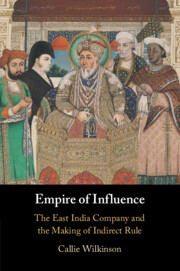Book contents
- Empire of Influence
- Empire of Influence
- Copyright page
- Dedication
- Contents
- Figures
- Maps
- Acknowledgements
- Note on Translation and Transliteration
- Chronology
- Abbreviations
- Additional material
- Introduction
- 1 A Time of Trouble
- 2 Negotiating the Disinformation Order
- 3 Warfare and ‘Wanton Provocations’
- 4 The Price of Pageantry
- 5 Weak Ties in a Tangled Web
- 6 Kinship, Gender, and Dynastic Dramas
- Conclusion
- Glossary
- Bibliography
- Index
6 - Kinship, Gender, and Dynastic Dramas
Published online by Cambridge University Press: 23 March 2023
- Empire of Influence
- Empire of Influence
- Copyright page
- Dedication
- Contents
- Figures
- Maps
- Acknowledgements
- Note on Translation and Transliteration
- Chronology
- Abbreviations
- Additional material
- Introduction
- 1 A Time of Trouble
- 2 Negotiating the Disinformation Order
- 3 Warfare and ‘Wanton Provocations’
- 4 The Price of Pageantry
- 5 Weak Ties in a Tangled Web
- 6 Kinship, Gender, and Dynastic Dramas
- Conclusion
- Glossary
- Bibliography
- Index
Summary
In a hereditary monarchy, kinship mattered; yet, royal family members are too often relegated to the background in contemporary scholarship on the princely states. This chapter shows that royal family members could muster significant social, political, cultural, and economic capital in support of their various personal and political projects, and often figured prominently in the records as the Resident’s greatest allies, or greatest foes. Residents developed a range of strategies for co-opting or side-lining younger brothers, uncles, and nephews, who, despite being useful informants, were also destabilizing forces in regional politics, and a drain on the Company’s time and resources. Women played an even more important role at court, one that has been obscured in previous accounts of the Residencies. This chapter shows not only how the Resident sought to mobilize royal women for his purposes, but also how royal women themselves laid a claim on the Resident’s services through the idiom of kinship and protection, often with significant consequences for the Resident’s political strategy at court. Rather than simplifying their job, the Residents need to work through royal families in fact introduced significant complications.
- Type
- Chapter
- Information
- Empire of InfluenceThe East India Company and the Making of Indirect Rule, pp. 209 - 244Publisher: Cambridge University PressPrint publication year: 2023

